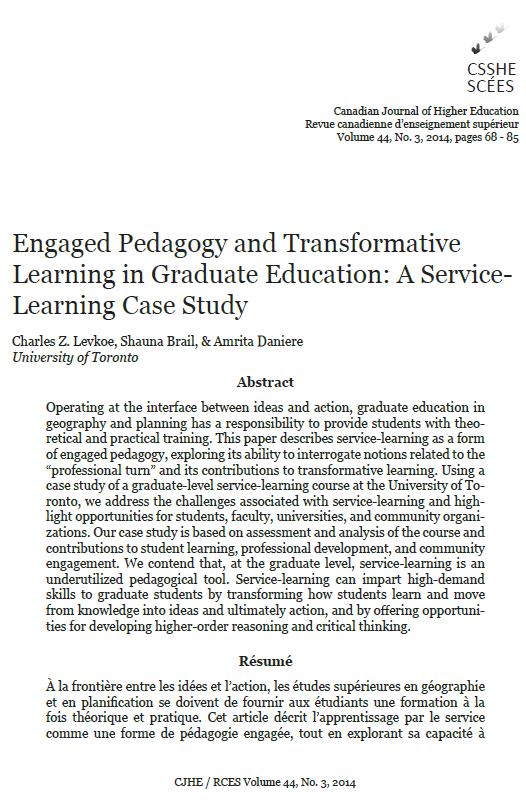In this journal article titled Engaged Pedagogy and Transformative Learning in Graduate Education: A Service-Learning Case Study, the authors use a case study of a graduate-level service-learning course at the University of Toronto to assess the challenges associated with service-learning and highlight opportunities for students, faculty, universities, and community organizations. This article was first published online in 2014 in volume 44(3) of the Canadian Journal of Higher Education.
Read the full article by clicking on the image below, or browse through the abstract for more information.
Abstract
Operating at the interface between ideas and action, graduate education in geography and planning has a responsibility to provide students with theoretical and practical training. This paper describes service-learning as a form of engaged pedagogy, exploring its ability to interrogate notions related to the “professional turn” and its contributions to transformative learning. Using a case study of a graduate-level service-learning course at the University of Toronto, we address the challenges associated with service-learning and highlight opportunities for students, faculty, universities, and community organizations. Our case study is based on assessment and analysis of the course and contributions to student learning, professional development, and community engagement. We contend that, at the graduate level, service-learning is an underutilized pedagogical tool. Service-learning can impart high-demand skills to graduate students by transforming how students learn and move from knowledge into ideas and ultimately action, and by offering opportunities for developing higher-order reasoning and critical thinking.
